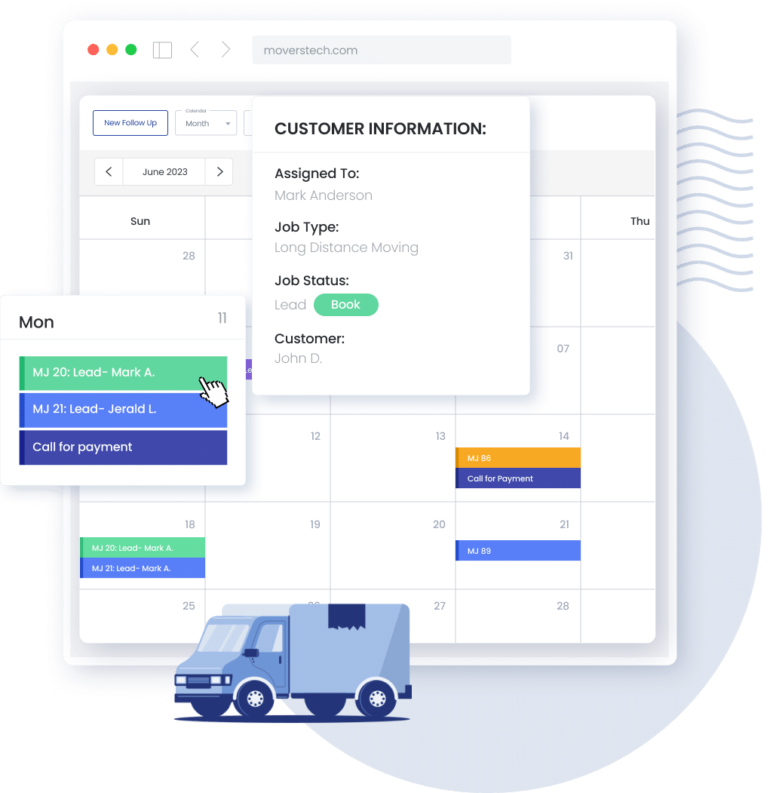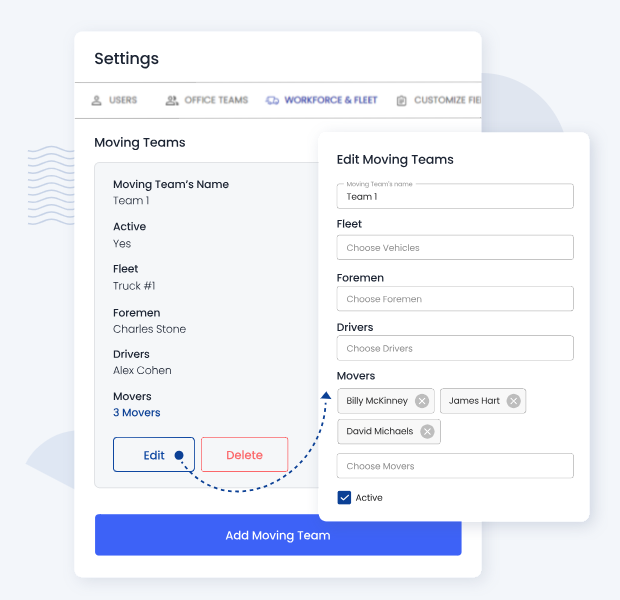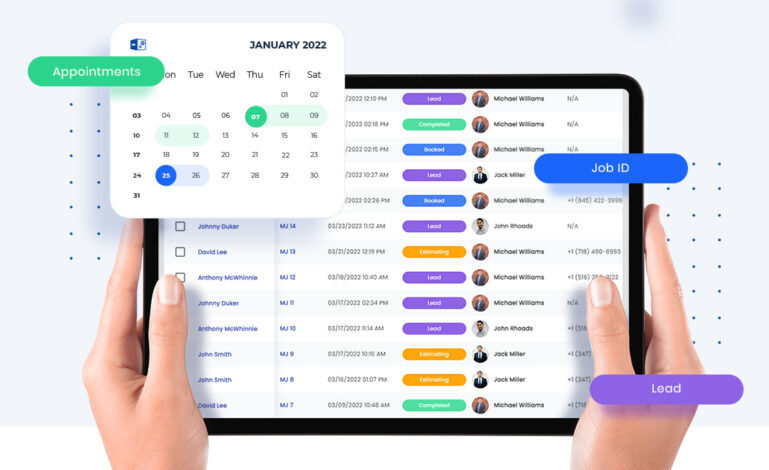Whether your franchises expand or your business branches out to new locations, managing a multi-location business can present unique challenges. From internal communication between locations to data analytics and profitability analyses, organizational problems arise. So, why should you let such concerns overwhelm you when technological advancements can offer solutions? MoversTech CRM has analyzed the benefits of Customer Relationship Management (CRM) software thoroughly and has come up with a perfect solution. Businesses, small and large alike, can benefit from a CRM, and the same is true for multi-location businesses of any size. Having said that, this article will explore how CRM helps your multi-location moving business overcome these challenges.
The challenges of running a multi-location business
Managing a multi-location moving business comes with unique challenges. Coordinating operations across different sites demands a high level of organization and communication. One significant problem is consistently ensuring quality service. Each location operates under the same brand, so customers expect uniform standards, as variations can harm the brand’s reputation.
Another challenge is managing inventory and resources. Movers need to track their trucks, equipment, and personnel across various locations, a task that can quickly become overwhelming. And last but not least, effective communication is vital. Miscommunications between branches can lead to operational problems and customer dissatisfaction.
The benefits of CRM for multi-location businesses
A Customer Relationship Management (CRM) system is a powerful tool for overcoming these obstacles. A well-implemented CRM can simplify operations, improve customer interactions, and provide valuable insights. Here are some of the ways how CRM helps your multi-location business:
- Uniformity Across Branches: A CRM ensures consistency and uniformity across all branches, creating a level playing field for each location.
- Performance Comparison: Companies with multiple branches can easily assess and compare the performance of each branch using detailed reports.
- Team and Resource Management: For businesses with numerous branches and larger office and field teams, effective tracking of personnel, trucks, and equipment is essential.
- Streamlined Communication: Most importantly, CRM systems enhance internal communication, enabling seamless information sharing and collaboration among branches.
For movers, integrating a CRM system into your business model is a strategic decision that resolves the core challenges of running a multi-location operation. It simplifies complex processes, enhances customer relations, and provides a competitive edge in the industry.

Overview of all operations
One big advantage of using a CRM is that it makes sure all your branches work the same way. It’s like having a simple overview of everything happening in every branch. This means everyone follows the same rules and does things in a similar way, creating a fair and level playing field for each location. It makes managing multiple branches much easier.
Simplified dispatch
Streamlining dispatch is a necessity for businesses with multiple locations. A complete CRM system helps companies efficiently dispatch and manage crews. It ensures efficient coordination among teams and vehicles, particularly in the moving industry, where timing and resource allocation are key. The CRM system allocates trucks and personnel adequately, reducing delays and optimizing operations. Managing different locations can be tough, but with a CRM system, you can have separate calendars for each branch. This makes it a lot easier to keep track of everything and make sure nothing falls through the cracks. It allows businesses to respond quickly to changing needs and schedules. This fast pace is how to maintain high customer satisfaction and operational efficiency. Moving companies can expect better service delivery, maximized resource utilization, and a stronger basis.

Improved communication
Staying connected with customers is essential for any moving business. A CRM system improves this connection through automated reminders. These reminders keep customers informed about their moving schedules and updates, significantly improving customer experience. In addition, the CRM offers team collaboration tools. They ensure that every team member is on the same page, enhancing service quality across all locations. With all of this in mind, a CRM system becomes a necessary tool in delivering consistent and high-quality service, no matter where the branch is located.
Better claims management
Efficient claims management is just as important for maintaining high service standards. A CRM system helps you resolve moving claims effectively. It provides real-time monitoring of each claim, ensuring prompt action and resolution. It also allows for constant customer updates, keeping them informed throughout the process. This transparency builds trust and shows a commitment to customer service.
Managing claims in multiple locations can be tricky, and you can’t afford to overlook any of them. With a CRM system, you can keep track of claims building up across all your branches.Quick and effective claims resolution impresses customers and helps maintain the company’s reputation. This all translates into fewer disputes, enhanced customer satisfaction, and a strong foundation for long-term customer relationships.
Faster creation and signing of documents
Working without paper is a huge increase in operational efficiency. Modern CRM systems support this by enabling document creation and electronic signing. This feature makes the process effortless, saving time and reducing paper waste.
One neat thing is that you can create different document templates for different branches and use them in communication and all related paperwork, which can vary from state to state. Electronic signatures are secure, fast, and legally binding, making document management a breeze. This leads to faster transactions, improved record-keeping, and happier customers. Going digital isn’t just efficient and shows your commitment to sustainability and modern business practices.
Real-time reports
Access to real-time reports is something that every business should have. A CRM system offers detailed performance reports, which are crucial for important business decisions. This feature is especially beneficial for businesses with multiple locations, as it helps monitor each site’s performance. These insights help you make your next move, ensuring that resources are allocated effectively. Integration with tools like Google Business Profile improves this capability, providing a lot of data regarding customer interactions and preferences. Moving companies find this important because it means staying ahead of market trends and taking calculated steps to improve overall business performance.
Embracing a CRM system for smoother operations
The integration of CRM in a moving company enables efficient lead management, simplified dispatch, automated financial processes, improved communication, and effective claims resolution. Aside from that, it also supports a paperless workflow and provides real-time business performance reports. These features are important for businesses looking to maintain high service standards across multiple locations. Moving companies should consider implementing a CRM to experience these benefits firsthand. Utilizing this technology will lead to overall business growth. Take the first step today towards upgrading your moving business with a CRM.
Stay Informed
Subscribe for industry
news & updates
"*" indicates required fields

